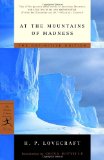Scriptwriting Tips offers daily advice in just a couple of lines, straight to the point, unlike me.
Tips are oriented to scriptwriters. In many cases the author -who has habit of being crude for the sake of impact- simply points out an overused cliché. Half the times the tips are highly arguable. But quite often good ideas come up which are useful for any writer, and every once in a while a real gem finds its way through and deserves being quoted if only for its brevity.
As an introduction, I offer a selection of the best tips from the last couple of weeks.
Good writing is when a character does something we weren’t expecting, but which makes perfect sense given everything we know about that character.
Every scene should affect the protagonist in some way, either directly or incidentally. If not, you got yourself a dud scene. Doesn’t matter if it’s the funniest, scariest, most exciting scene in the script — it needs to go.
If your characters don’t say horrible, soul-crushing things to each other during the dark point, you’re doing it wrong.
You don’t have to start in media res, but maybe you could do us all a favor and start at the not-boring part?
If only for the sake of commenting, I’ll keep posting here selections of their best advice as it gets published.

